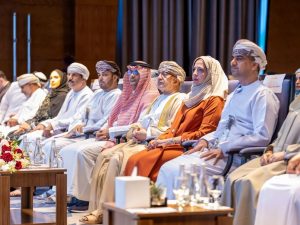The workshop discussed the concepts and methodological frameworks for measuring tourism in line with international standards, along with mechanisms for linking statistical data and administrative records related to visitors and tourism expenditure. It also highlighted the importance of integrating national data sources to assess both the direct and indirect impact of tourism on GDP and employment. The event brought together experts and specialists from national statistical offices and tourism authorities across GCC member states, in addition to representatives from regional and international organisations. The regional workshop on ‘Measuring the Contribution of Tourism to the Economy’, hosted by the Gulf Cooperation Council Statistical Centre (GCC-Stat) concluded under the patronage of Salim bin Mohammed Al Mahrouqi, Omani Minister of Heritage and Tourism, underscored the importance of adopting comprehensive methodologies to measure tourism’s total contribution to the economy. Such an approach provides a more accurate and holistic picture of the sector’s true role in supporting GCC economies and assists in formulating effective, evidence-based policies founded on reliable statistical data. Al Mahrouqi stated that the workshop comes at a particularly significant time, as the tourism sector in the region is witnessing rapid growth and qualitative transformation in infrastructure, services, and investment. He noted that Oman and other GCC countries attach great importance to tourism as a central pillar of economic diversification, recognising its role in job creation, stimulating productive and service sectors, and enhancing sustainable development. However, he stressed that achieving this potential requires accurate and reliable statistical systems capable of measuring the true value of tourism’s contribution to GDP and to the national economy as a whole. He added that this workshop, organised by GCC-Stat, serves as a platform for experience sharing, capacity building, …
Read More »
Breaking News
- Middle East tourism to grow 40% by 2030 as global travel enters new phase
- Jazeera Airways drives revenue optimization with Amadeus SRM Flex integration
- Etihad expands Thailand network with new Krabi flights
- Ramada by Wyndham to Debut in Madinah Through Partnership with Local Hotel Owner, Strengthening the City’s Hospitality Landscape
- ITB Asia kicks off in Singapore with ME participation
- Saudi Red Sea unveiled as the Arabian Super Destination at Monaco Yacht Show, charting a new course from the Med to the Red
- Turkish Airlines and Air Algérie sign to broaden strategic partnership and codeshare expansion
- Emirates introduces Premium Economy to Bangkok on newly retrofitted A380
- Air India Express launches direct flights from Bengaluru to Jeddah, Riyadh, Kuwait
- GCC Statistical Centre holds workshop on measuring tourism’s economic contribution
- Department of Culture and Tourism – Abu Dhabi launches Frieze Abu Dhabi
 Tourism Breaking News
Tourism Breaking News
